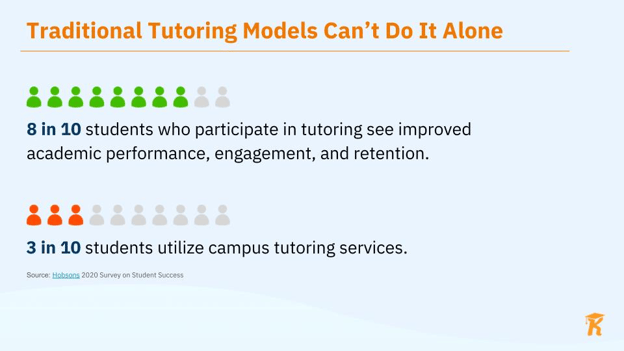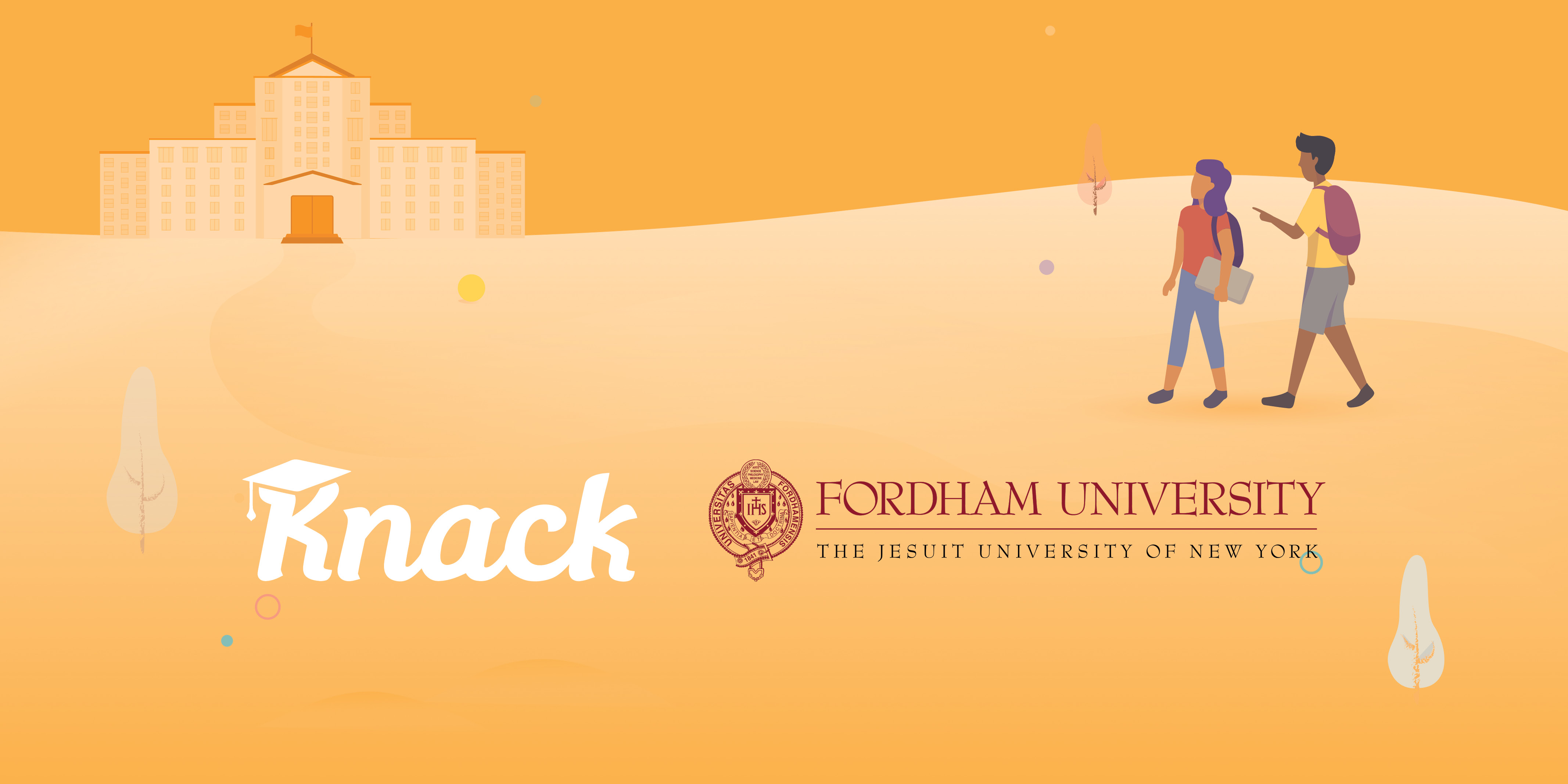Fordham University’s Dr. Anand Padmanabhan and Dr. Tracyann F. Williams recently joined Knack for a discussion on how they successfully centralized and virtualized their peer tutoring network.
Here’s what you missed:
The Importance of Peer Tutoring
Page Keller, head of academic relations at Knack, began the discussion on peer tutoring: “It’s no secret that peer tutoring has long been recognized as an essential supplement to traditional course functions.”
“We also know peer tutoring significantly increases the likelihood of student retention and persistence toward graduation,” she added.

However, as she mentioned, managing a successful tutoring program is a challenge, especially when only 3 in 10 students utilize campus tutoring resources.
That is where Knack’s peer tutoring program comes into play.
“Rather than replacing your existing tutoring program, Knack serves as a supplement to supplement and enhance your efforts,” said Keller.
The Case Study
With a global pandemic raging on and student success being a major concern, Williams and her team were faced with a major challenge.
“I was very concerned with trying to increase the tutoring resources to foster engagement in students and to get some bang for our buck, and how were we going to do this given we were far- flung–we were all over the world and country at that point so how were we going to do it,” said Williams.
Then, Williams found Knack.

Fordham University: Challenges with Historical Campus Tutoring
In Fall of 2021, Fordham piloted a limited version of Knack’s peer-to-peer tutoring program for “core” curricula. Together with the IT department and early buy-in from faculty, the launch proved to be successful and the program was easily adopted by students. This success led to Fordham’s Gabelli School of Business also adopting the program to serve specifically business courses with a slightly different tutor pool (including undergraduate, graduate and alumni students).
Both programs have led to 12,000+ hours of tutoring happening in-person and online and with a near perfect tutor request response rate at midterms–99.7%.
The Questions & Answers
Williams, Padmanabhan and Keller closed the session by answering questions about the ease of the Knack program (especially when they’re “platform adverse” as Williams noted) and how they were able to instill valuable, evergreen skills for tutors to leverage after their time at Fordham.

Fordham - How Tutor Development Impacts Future Workforce
Williams also addressed her involvement with the program and its tutor recruitment and emphasized how the Knack platform supplemented and enhanced their existing tutoring programs instead of making them obsolete.
“I’m constantly connected to my [Partner Success Manager]. We are in constant communication. If there’s a student who shows up and says, ‘I want to tutor but I’m not approved for this course,’ then she and I will talk about it. Then, I might go to the department. So, there’s a lot of interaction about who’s doing the tutoring,” Williams said.
This webinar is available to you! Get the insights for yourself and download webinar recording below:
If you’d like to learn more about the Knack platform and it can supplement your existing tutoring programs, contact our Partner Success team at joinknack.com/partner.



